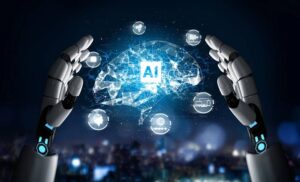Artificial Intelligence (AI)
What is Artificial Intelligence ❓
AI, or Artificial Intelligence, refers to the simulation of human intelligence in machines, enabling them to perform tasks that typically require human-like understanding and cognition. AI systems can:
- Learn: AI can learn from data, experiences, and interactions.
- Reason: AI can draw inferences, make decisions, and solve problems.
- Perceive: AI can interpret and understand data from sensors, images, and text.
- Act: AI can take physical or virtual actions, such as moving robots or generating text.
AI applications include:
- Virtual assistants (e.g., Siri, Alexa)
- Image recognition and classification
- Natural Language Processing (NLP)
- Expert systems
- Robotics
- Predictive analytics and forecasting
- Autonomous vehicles
- Chatbots and conversational AI
AI has many benefits, such as:
- Automation and efficiency
- Enhanced decision-making
- Improved customer experiences
- Scientific discoveries and insights
- Healthcare advancements
However, AI also raises ethical concerns, like:
- Job displacement
- Bias and discrimination
- Privacy and surveillance
- Accountability and transparency
As AI continues to evolve, it’s crucial to address these challenges and ensure responsible AI development and deployment.
Share this content:




Post Comment